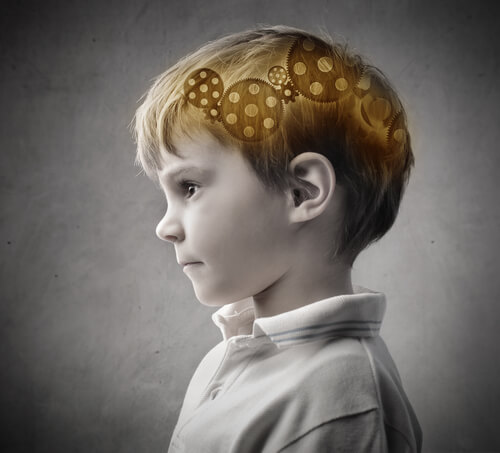Emotional Support in Childhood Aids in Brain Development

Studies show that emotional support in childhood, especially the first years of a child’s life, is very important. It affects the child’s emotions, as well as their brain development. The child’s environment is crucial. It helps them develop tools to regulate their emotions and enjoy good mental health.
Emotional support in childhood allows a stable bond to form between the baby and the baby’s caregivers. This bond ensures that their needs are met. It is a chance to create an intimate emotional bond. It contributes to safe, healthy attachment.

Aside from the obvious benefits of proper emotional support, scientists have also studied its impact in different fields. We see benefits in the child’s mental health and emotional regulation. It has also been found that emotional support in child plays into cognitive development.
Emotional support in childhood
Children lack the ability to regulate their emotions on their own. Physical, as well as emotional contact, comforts them when they’re in need. With time, children learn to regulate their emotions on their own. They start to develop tools so they can do it without their caregivers.
This early bond has a direct impact on the brain. We have to keep in mind that biology, the environment, and mental capacity are all related to brain development. That’s why growing up in an environment rich in external stimulation helps the brain mature
Childhood is a sensitive period when important aspects with term-term consequences develop. In this stage, children start to relate to their surroundings and collect new information. Their brains are at the height of development. Neuroplasticity is in a pivotal moment. The environment, to a large extent, determines the direction and speed of development.
Emotional support in childhood and the development of the hippocampus: a scientific study
Dr. Luby directed a study to find out the long-term impact that emotional support in childhood has on the brain. Researchers carried out a lab experiment to test their hypothesis. In a lab setting, independent evaluators observed a child and his mother in a situation that was stressful for the child.

In the experimental situation, the child had a gift within reach that he wasn’t allowed to open. For eight minutes, he had to wait, while researchers noted the mother’s supportive behavior. Later, researchers did three brain scans on the children from childhood to adolescence.
As it turns out, the hippocampus of children who got more emotional support from their mothers grew twice as fast as those of children who got less support from their mothers. According to the authors, the results show that the growth of the hippocampus is affected by early experience of maternal support.
Primary conclusions from the study
We can draw three conclusions from this study. In the first place, emotional support in childhood has a long-term impact on the size of the hippocampus. The hippocampus is an area of the brain that controls emotions, learning, and memory. Therefore, it plays an important role in development.

There is a sensitive period during which high levels of emotional support are more influential in the development of the hippocampus. They found that it’s more important and effective in preschool years than later. So, we can conclude that not only does the amount of emotional support matter, but also when it is received.
Healthy brain development leads to better emotional health. Hence, environment is crucial. Not only for learning, but also for physical and emotional development. This doesn’t diminish the importance of genetics, however. Rather it demonstrates the influential role that our surroundings have in our brain development. It is a window of opportunity for our children that we should never close. For their own good, and because we love them.
This text is provided for informational purposes only and does not replace consultation with a professional. If in doubt, consult your specialist.








